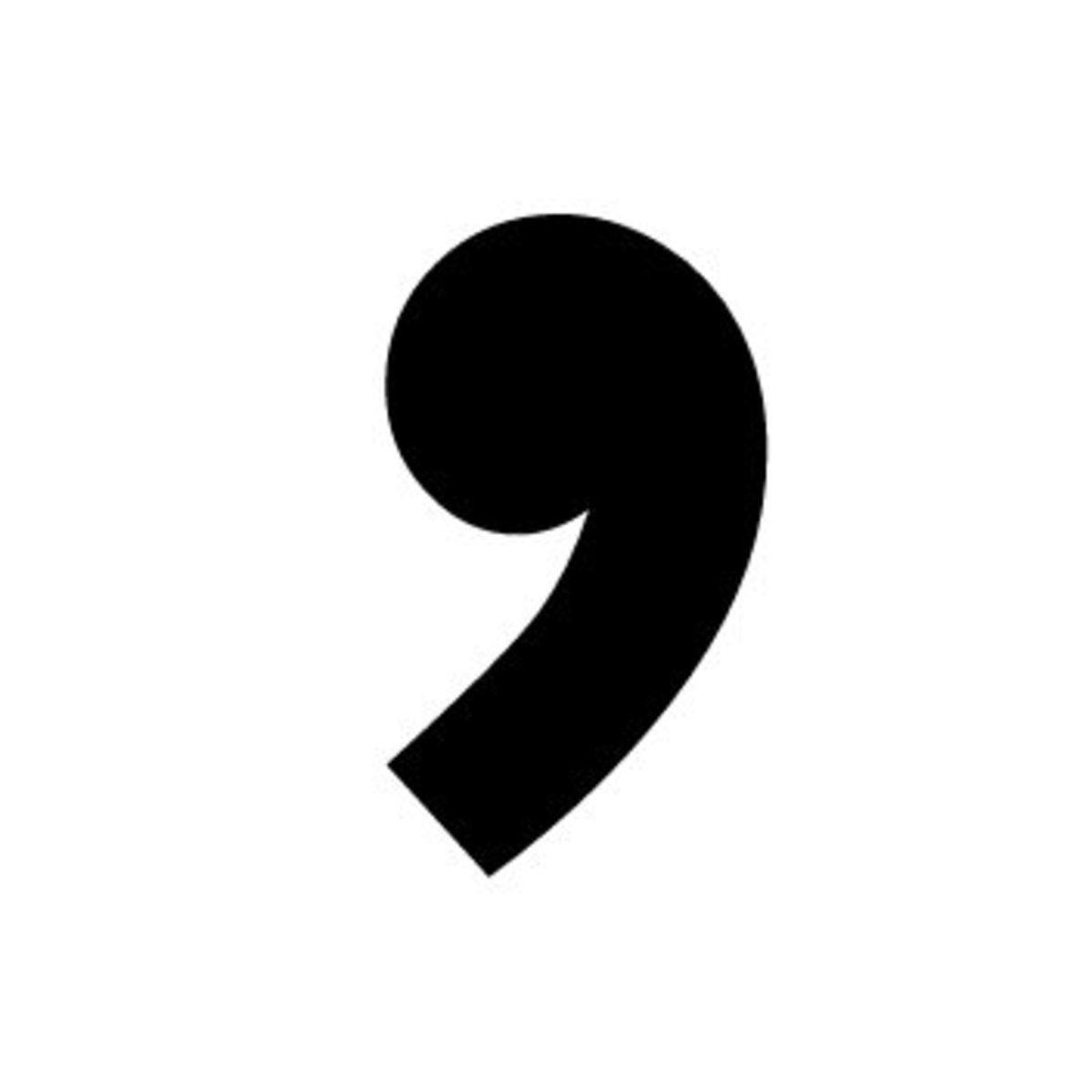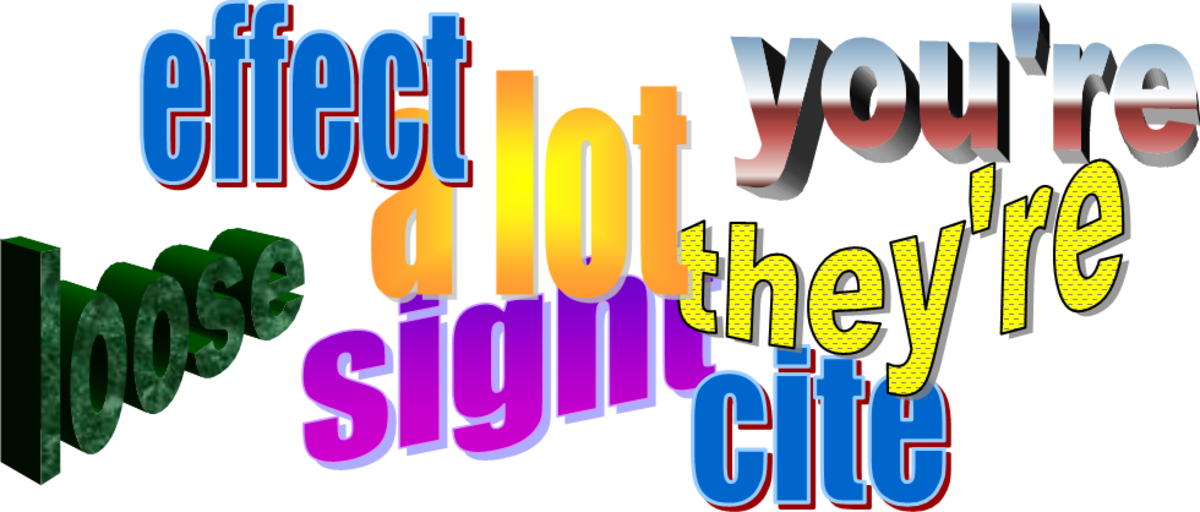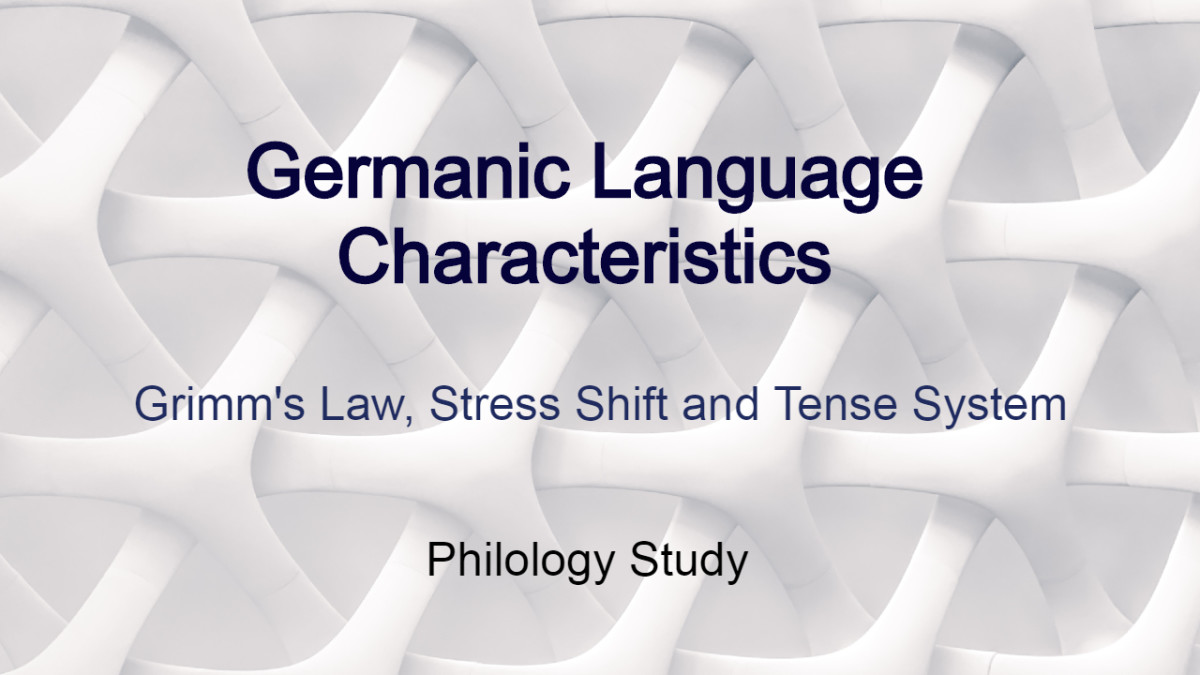How to Correct Comma Splices and Run-On Sentences - English Grammar Lesson
Correcting Major Sentence Level Errors
As an English instructor, two of the major sentence level errors I see are comma splices and fused, or run-on, sentences. In this article, I will give four different ways to correct them, as well as tips on how to catch these errors in your own work.
What is a Semi-Colon?

What is a Comma Splice?
A comma splice is the joining of two complete sentences with only a comma in-between. This is a major error.
Example: I like that book, I plan to read it next summer.
These are two separate sentences; thus, a comma is not the correct punctuation to separate the two. We will look at a corrected example after first reviewing run-on sentences.
What is a Run-On Sentence?
A run-on (also called “fused”) sentence has no punctuation between two complete sentences. The sentences are thus “fused” together with no punctuation. These “run-on” sentences are so called since they run into each other with nothing to set them apart.
Example: I like that book I plan to read it next summer.
What is a Comma Splice?
Ways to Correct Comma Splices and Run-Ons
1) Use a period: I like that book. I plan to read it next summer.
2) Use a semi-colon to connect two closely related sentences, which would work fine in this case: I like that book; I plan to read it next summer.
3) Use a comma and coordinating conjunction (and, or, but): I like that book, and I plan to read it next summer.
4) Make one of the sentences into a dependent clause, leaving the other as an independent clause: Because I like that book, I plan to read it next summer.
Tips to check for Comma Splices and Run-On Sentences
Read your work aloud. Does the sentence sound like it ends? Listen for the natural end of the sentence. Do you hear a noun and a verb and a completion of the sentence? Do you automatically pause as you end the first part of the sentence? Do you hear the second subject and verb start a second and new sentence? I have found that reading aloud is helpful for many people. Try it if you have trouble with comma splices and run-on sentences.
2011 Grammar Geek
More Grammar Practice
- 10 Commonly Misused Words
This grammar geek hates to hear language used incorrectly. Here are ten commonly misused verbs and other words that I hear on a daily basis. It's my hope that I can teach somebody something that they will use. - How to Use Apostrophes to Show Ownership
This lesson will review how to use apostrophes to show possession. We will review singular and plural possessives, as well as the usage of possessive pronouns. - Misspelled Homophones - Your/You're, Too/To, Their/There and More
Test your knowledge of the most common words that sound alike but are spelled differently. Here are five of the most commonly misspelled sets of homophones, including your/you're, their/there/they're, and to/too.









